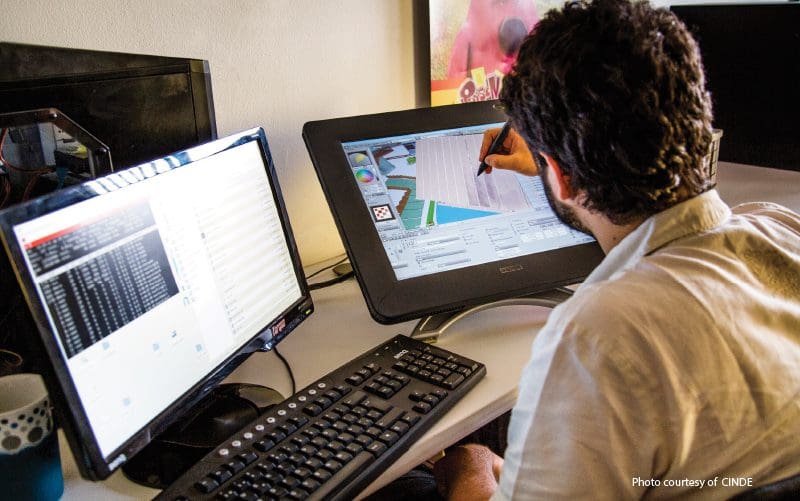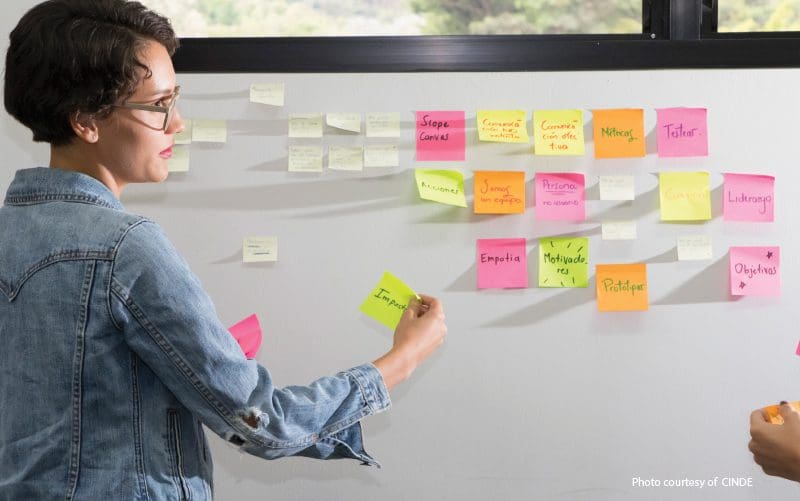
Keeping Pace with Industry 4.0 in Costa Rica
CINDE: Keeping Pace with Industry 4.0 in Costa Rica. Do you remember the first word that you pronounced when you were little? What were the last song lyrics that you’ve been repeating over and over again? Do you recall the latest piece of information that caught your attention?
We are living in a time of overwhelming 24/7 data. No wonder it is called the era of the knowledge economy!
This term was coined in the 1960s, reflecting a shift from traditional economies to one focused on productivity and applied knowledge. It has been a dynamic evolution presenting different kinds of challenges to almost everyone. Holding on to your job without assurance of employment security has been a key theme.
A McKinsey’s Global Institute study concluded that by 2030, 375 million workers — 14% of the world’s labor force — will have to change jobs due to the disruptive impact of digitalization, automation and artificial intelligence (AI).

The technological transformations that took place in the 20th century and those we are currently experiencing almost defy comparison. Characterized by heavy reliance on automation and interconnected cyber-physical systems, the so-called fourth industrial revolution, or industry 4.0, is well underway. The speed of change today is much faster and demands that we react at the same pace.
So, how is Costa Rica navigating this journey?
Riding the wave
Although it might appear to be a bleak picture, Costa Rica has multiple opportunities to ride the wave and get ahead with its corps of trained, but mostly adaptable, human talent, said Vanessa Gibson, Head of Investment Climate with the non-profit Costa Rican Investment Promotion Agency (CINDE).
“Reskilling has found an increasingly essential place in society,” Gibson stated. “One thing about industry 4.0 is implicit. The more we train ourselves to constantly learn — specifically in the areas of labor market demands — the more employment doors we open.”
Thanks to CINDE’s success over the past four decades in attracting foreign direct investment to Costa Rica, more than 300 multinational companies have operations here, representing 12% of the nation’s private labor force. These companies are constantly growing and advancing, requiring more trained, digitalized and multilingual human talent.
This never-ending challenge for businesses everywhere was recently affirmed in the 2018 Shifting Skills Survey conducted by Gartner Inc., an international consulting and information technology research company.
“To compete in the increasingly digital world, companies must ensure that their workforce has the necessary skills for today and tomorrow,” Sari J. Wilde, research leader at Gartner said in the survey report.
More than 7,000 employees participating in the study were asked to self-assess their skill levels in high-demand areas. While 70% of the respondents said they had not mastered the skills needed for their current jobs, 80% admitted to being ill-equipped with the skills required in their present work and future career.

Need not be complicated or expensive
Gibson clarified that relearning should not be considered a complicated or expensive process. “There are courses offered by renowned universities from which you can retrain at a low cost, whenever and wherever you want.”
Options include Massive Open Online Courses (MOOCs), she noted. Platforms like Coursera, Udemy, and EDX offer free courses and other specialized programs at a low cost, sometimes in Spanish.
To support the country’s reskilling goals in relation to its foreign direct investment initiatives, CINDE has created The Talent Place at www.thetalentplace.cr, where careers in Costa Rica are ranked by highest demand. In addition, thousands of job opportunities focusing on strong labor market demand are promoted during the annual CINDE Job Fair.
Costa Rica’s emphasis on education as a public funding allocation priority, representing more than 7% of its GDP, enables development where it matters most for the knowledge economy. It is no wonder that Costa Rica was the highest-scoring Latin American country in the World Economic Forum’s human capital ranking, which bodes well for the future.
“Training is a continuous process,” concluded Gibson. “We have to embrace it and take advantage of what this new great era has in store for us.”
Read more about CINDE here.

